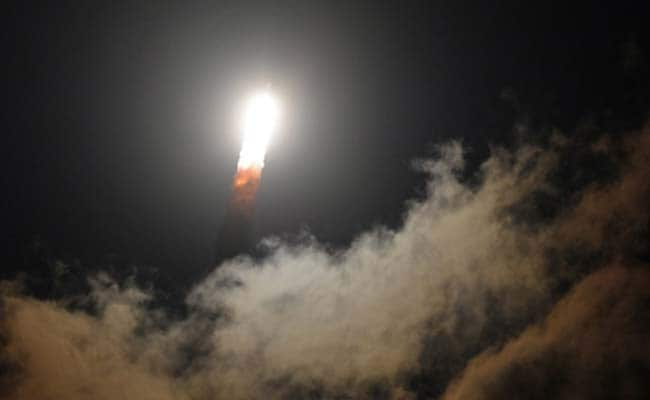
PM Modi said the successful launch will bring benefits of India's space programme to the common man
New Delhi:
Prime Minister Narendra Modi on Thursday congratulated ISRO scientists for the successful launch of navigation satellite IRNSS-1I and said it will benefit the common man of the country.
ISRO's navigation satellite INRSS-1I was launched on Thursday by PSLV-C41 from the spaceport at Sriharikota in Andhra Pradesh and was successfully placed in the designated orbit.
"Congratulations to our scientists on the successful launch of navigation satellite IRNSS-1I by PSLV. This success will bring benefits of our space programme to the common man. Proud of team @isro!" the PM Modi tweeted.
The PSLV-C41/IRNSS-1I Mission blasted off at 4:04 am from the first launchpad at the Sathish Dhawan Space Centre. It was a normal lift-off, ISRO officials said.
 Indian Space Research Organisation Chairman K Sivan described the mission as a success and congratulated the scientists.
Indian Space Research Organisation Chairman K Sivan described the mission as a success and congratulated the scientists.
He said IRNSS-1I was successfully placed in the designated orbit.
IRNSS-1I is expected to replace IRNSS-1A, the first of the seven navigation satellites, which was rendered ineffective after its three rubidium atomic clocks failed. The seven satellites are part of the NavIC navigation satellite constellation.
The launch is ISRO's second attempt at sending a replacement satellite.
ISRO's navigation satellite INRSS-1I was launched on Thursday by PSLV-C41 from the spaceport at Sriharikota in Andhra Pradesh and was successfully placed in the designated orbit.
"Congratulations to our scientists on the successful launch of navigation satellite IRNSS-1I by PSLV. This success will bring benefits of our space programme to the common man. Proud of team @isro!" the PM Modi tweeted.
The PSLV-C41/IRNSS-1I Mission blasted off at 4:04 am from the first launchpad at the Sathish Dhawan Space Centre. It was a normal lift-off, ISRO officials said.

ISRO Chairman K Sivan said the IRNSS-1I satellite was placed successfully in its designated orbit
He said IRNSS-1I was successfully placed in the designated orbit.
IRNSS-1I is expected to replace IRNSS-1A, the first of the seven navigation satellites, which was rendered ineffective after its three rubidium atomic clocks failed. The seven satellites are part of the NavIC navigation satellite constellation.
The launch is ISRO's second attempt at sending a replacement satellite.

